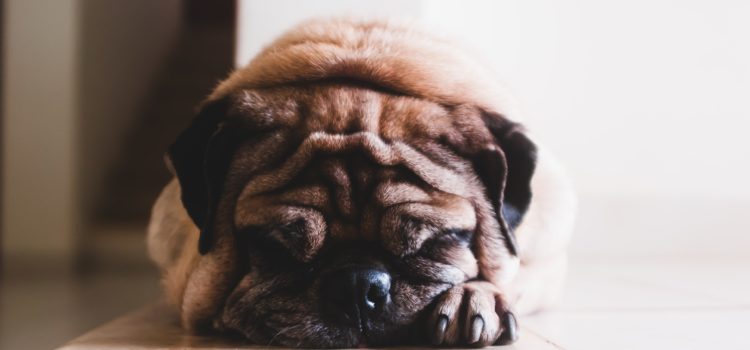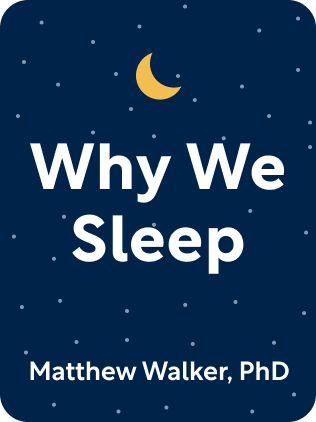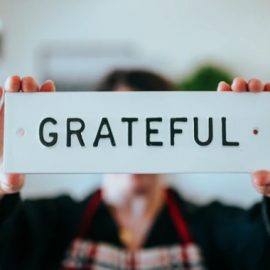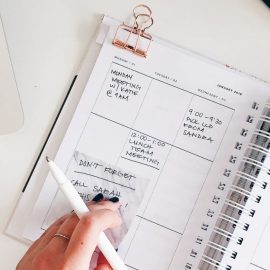

This article is an excerpt from the Shortform summary of "Why We Sleep" by Matthew Walker. Shortform has the world's best summaries of books you should be reading.
Like this article? Sign up for a free trial here .
What is the correlation between lack of sleep and weight gain? Does lack of sleep really cause weight gain, or even obesity?
Researchers know that sleep deprivation can cause many health risks. One of these is weight gain. While the exact reason lack of sleep and weight gain are linked is up for debate, the two are definitely linked.
How Lack of Sleep and Weight Gain Are Linked
In addition to the damage it causes to the brain, sleep deprivation disrupts the normal function of many physiological processes, likely contributing to chronic diseases. In this chapter we’ll cover a bevy of health issues associated with sleep deprivation.
At a high level, sleep deprivation of even just 1-2 hours triggers the sympathetic nervous system (fight or flight response) and disrupts hormonal balances. This also implies that sleep is necessary for the normal maintenance of physiology.
Shortform Caveat
Many of the population studies cited in Why We Sleep are correlational – e.g. people who sleep less are more likely to have heart disease, after controlling for many other factors. But the causation is unclear – some other factors that predispose people to get heart disease (like a high baseline level of stress) could also reduce sleep.
To address this, the experimental studies cited attempt to link lack of sleep to a middle physiological state, which itself is causative for the disease. For instance, lack of sleep increases blood pressure, which the medical consensus believes is causative for heart disease.
Ideally, the “smoking gun” experiment would be to randomize people into normal-sleep and low-sleep groups for years, then observe the rate of disease. However, this is impractical (it’s hard to run very long studies like this and impossible to double-blind) and likely unethical (if low sleep is already believed to cause severe disease).
Obesity, Weight Gain
As it relates to weight, sleep deprivation:
- Hormonally, reduces leptin (the hormone that makes you feel full) and increases ghrelin (the hormone makes you feel hungry). It becomes harder to feel satisfied after eating.
- Increases endocannabinoids (reduces pain sensation but increases appetite; also released in runner’s high), which increases eating
- Makes you feel lethargic, which makes you less likely to exercise
- Disrupts the linkage between the rational prefrontal cortex and the primal appetite center in the brain (similar to emotional control in the last chapter), so it becomes harder to regulate your eating
In an experiment, subjects were randomized into a normal 8-hr sleep group, and a low 4-hr sleep group. Both groups were carefully monitored and controlled for physical activity.
- The low-sleep group ate 300 more calories each day, even after just 4 days of sleep deprivation.
- The low-sleep group was also more prone to overeating each meal, consuming 330 more calories in snack foods after a meal.
One might argue that decreased sleep naturally causes more calorie burn, but an all-nighter actually consumes only 147 more calories than sleeping. Sleep is metabolically more intense than you might guess.
Finally, if you’re losing weight and under sleep deprivation, the shift of where you lose the weight from differs. When sleep-deprived, 70% of weight loss comes from lean body mass like muscles, compared to under 50% with plentiful sleep.
Improving Sleep in Society
We’ve seen chronic sleep deprivation caused by a variety of factors, from the individual scaling up to the societal. The book ends with the author’s musings on how to improve sleep quality systemically:
- Individual
- Automated “internet of things” household that can automatically sense your circadian rhythm and personalize the temperature and lighting to maximize sleep.
- Furthermore, if you have an upcoming disruption to your sleep schedule (like a flight), it can adjust your circadian rhythm to smoothen the transition.
- Sophisticated body trackers that record a host of factors — sleep, physical activity, light exposure, temperature, heart rate, mood, happiness, social performance, productivity — and shows how your sleep correlates with better performance on all dimensions
- Patients given tools to show their compliance with a program (like blood pressure monitors, scales) increase compliance rates. More data on sleep would improve sleep quality.
- Can also predict when it’s best to get a flu shot (since sleep affects responsiveness to vaccine)
- Cars that sense sleepy driving through facial recognition and driving behavior. The car can shut down in dangerous situations. Drivers with good sleep habits may get lower insurance rates.
- Automated “internet of things” household that can automatically sense your circadian rhythm and personalize the temperature and lighting to maximize sleep.
- Educational
- Have sleep be a mandatory subject in physical education (like drugs and diet)
- Have predictive tools that show the costs to health and income if you continue your poor sleep habits
- Instruct the populace on sleepy driving as much as drunk driving
- Organizational
- Companies should be more flexible about work hours, allow naps, and de-emphasize hours worked in favor of real productivity.
- Employers and insurance companies can incentivize sleep. For example, for a certain number of days of over 7 hours of sleep (as tracked by a sleep monitor), get extra vacation days, more pay, or reductions in health insurance premiums.
- Hospitals should promote sleep hygiene for patients, especially in the ICU and NICU. Change the harsh white lighting, dispense earplugs and eye masks, reduce alarms and beeps, and schedule lab tests to align better with sleep schedule.
- Better sleep is shown to reduce sensitivity to pain, and increase weight gain and O2 sat levels in neonates.
Lack of sleep and weight gain are linked, even if researchers are unsure why. So, if you’re concerned about lack of sleep and weight gain, consult with a doctor and try to improve your sleep habits.

———End of Preview———
Like what you just read? Read the rest of the world's best summary of Matthew Walker's "Why We Sleep" at Shortform .
Here's what you'll find in our full Why We Sleep summary :
- Why you need way more sleep than you're currently getting
- How your brain rejuvenates itself during sleep, and why nothing can substitute for sleep
- The 11-item checklist to get more restful sleep today






